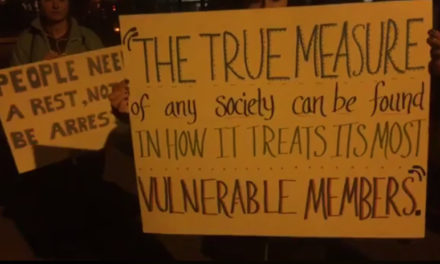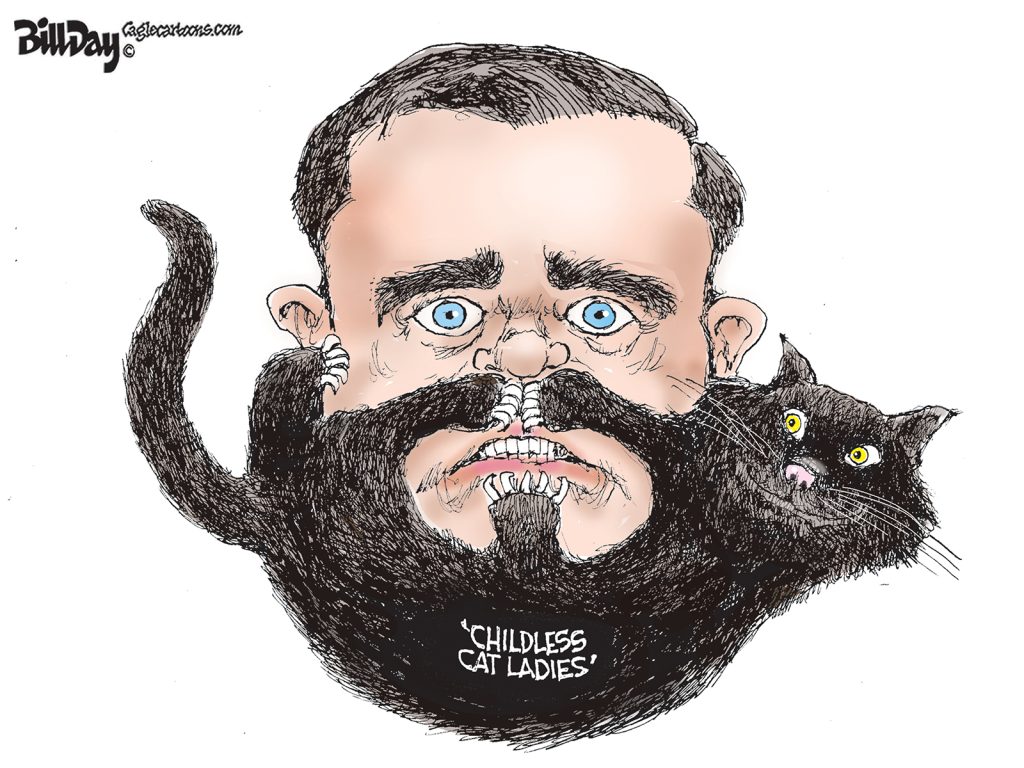The devil is always in the details – and that’s especially true in politics and government – but Memphis Mayor Paul Young’s idea for creating a director of public safety is a promising move in the right direction.
His job description for this new director: to address public safety in its “broadest context.”
Clearly, what’s being done now is not working and taking this public safety umbrella approach is working in a number of cities that have already implemented it.
We may already be a few years more than two decades into the new century, but it’s never too late to set out a 21st century agenda that creates a more effective community-centered public safety ecosystem whose interdependent parts can be aligned to deliver better results. In other words, the new director’s mission is to find alternatives to policing that keeps Memphis, ends racial disparities, and ends armed officers responding to 911 calls that pose no imminent threat or danger to others.
More and more cities are coming to grips with the reality that real public safety requires an interconnected, holistic approach and interlocking strategies. The crime trend line in Memphis is proof positive that the current framework is insufficient and demands change. That why the mayor’s appointee should concentrate on building a new, balanced framework that in particular creates greater trust and develops citizen engagement processes built on improved transparency and collaboration.
Future of Public Safety is Not Just About Future of MPD
Fundamental to the new director’s plan of action is a single overarching principle: the future of public safety cannot be thought of as about the future of policing. Enforcement does of course matter but it also matters how police officers see themselves. As John Jay College of Criminal Justice professor Barry Friedman has said: “Police departments and officers must view themselves as, and act as, guardians of the community, not warriors against crime.
“Flowing from this, members of the public must recognize that public safety is not simply the domain of the police. It is a community responsibility and requires investment, buy-in, and participation from a number of stakeholders. It will never be achieved by a single person or a single group and will require collaboration among political leaders, activists, organizations, law enforcement, and community members.”
The good news for whomever is appointed to this new job is there is plenty of “best practices” from other cities and reams of research on taking a broad public safety focus by groups by National League of Cities, John Jay College of Criminal Justice, Vera Institute of Justice, Cities United, and others.
Hopefully, this new director will be someone with specific experience in public safety rather than enforcement. The challenge for police trained in the enforcement sphere is that when you are trained to be a hammer, you see everything as a nail. The person named to this position needs to bring new eyes and fresh thinking to disaggregate the functions of the police with public health, mental health, and juvenile justice – to name a few – in mind.
Seeing the broad scope of public safety issues is about seeing beyond enforcement and into how neighborhood leaders and neighborhood strategies can become a backbone strategy to preventing crime.
Power to the Collective
If the present state of things in Memphis tells us anything, it is that if public safety is the objective, it requires a collective response. In differentiating the functions that MPD is required to perform, armed officers’ training in force and power often ill equip them to handle – say, those involving mental health issues, homelessness, substance abuse, and often domestic violence issues.
It’s not a knock on the police because they are exactly who we trained them to be – armed with lethal weapons and using force as their response – and now they serve where, thanks to the Tennessee Legislature, guns are ubiquitous and approaching every person and every vehicle can have terminal consequences.
The first task of the new public safety director is to comprehensively reimagine and redefine what the public safety functions are. Then, the job is to determine the set of skills that are needed to execute each function and to identify an organization, neighborhood group, or leaders that can be factored into the solutions.
For example, some cities have set up mental health counselors to answer those kinds of calls and equipped neighborhood leaders to become what’s called “credible messengers,” homegrown leaders who share similar life experiences with young people involved in the justice system. These credible messenger programs have shown positive results and a leading one is the Raphah Institute, just up the interstate in Nashville so it’s a good place to start.
Of course, the ultimate effectiveness of the public safety director can depend on state legislators allowing that person the opportunity for success without the interference that seems to come daily from them (think Senator Brent Taylor). And equally important, hopefully, the mayor will not allow the Crime Commission to do what it does best – exert its opinion to control innovative thinking and to pursue the same strategies that were used while the crime rate was exploding.
It’s Not One-Size-Fits-All
A case can be made that Police Chief C. J. Davis should report to this new public safety director. Reports from City Hall are that all options are being considered but there’s no clear evidence Mayor Young is leaning in that direction.
Whatever the ultimate reporting lines are to be, the public safety director and police chief must have a close dotted line relationship. The police chief likes to say that MPD’s business is public safety, but the question worth asking is whether public safety is what Memphians are now getting. That’s why the public safety director must have the authority to focus on exactly what police are doing and asking whether society’s goals are being met.
In disaggregating the reasons why police are called, particularly the roles they are unreasonably called to play, it is possible, as other cities have proven that moving away from a one-size-fits-all philosophy of policing can avoid conflicts when specific skills are matched with specific kinds of calls.
In addition, the new director should implement evidence-based strategies, engage in research, track innovations that are working in other cities, and ensuring data analytics that are accessible to the public, community groups, and agents of change.
We know it can work because it does in other cities. There, they are thinking differently, mobilizing community support, and improving trust and proving that the opportunity cost of not doing something different is much greater than doing something new. Meanwhile, in Memphis, legacy policing that continues to lack comprehensive measurements consumes roughly two out of every three dollars in city government’s budget.
A Game Changer?
Because policing consumes so much of cities’ budgets is why cities are recognizing that a prevention-first public safety approach is the smartest investment for taxpayers while changing the primary focus of public safety from suppression enforcement to a communitywide campaign for justice and safety.
Investments in prevention programs – education, economic opportunity, health, and housing – may well be the most important public safety strategies that local government can make to decrease violent crime while increasing equity and tackling overpolicing.
The appointment of the new director of public safety has the promise to be a major step forward in Memphis’ fight against crime. It now requires a charge from the mayor to his appointee to be bold, to question conventional wisdom, to challenge business as usual, and to reach out to learn from other cities that have seen results from this approach.
It all comes down to finding a person ready to be the change agent Memphis needs. It also requires the mayor to pledge his strongest backing and to resist efforts by the Crime Commission, East Memphis and suburban legislators, and the Tennessee Legislature (with the Crime Commission in background) will mandate their ideological opinions on Memphis’ policing and criminal justice system.
All in all, considering the creation of this new public safety director has the potential to be a game-changer for Memphis.
**
Join us at the Smart City Memphis Facebook page for daily articles, reports, and commentaries that are relevant to Memphis.





This could be a reasonable approach. However, my fear is he will appoint someone local and Bill Gibbons will co-opt the effort as he has everything else in this realm.
A well-founded fear for sure. Great point.